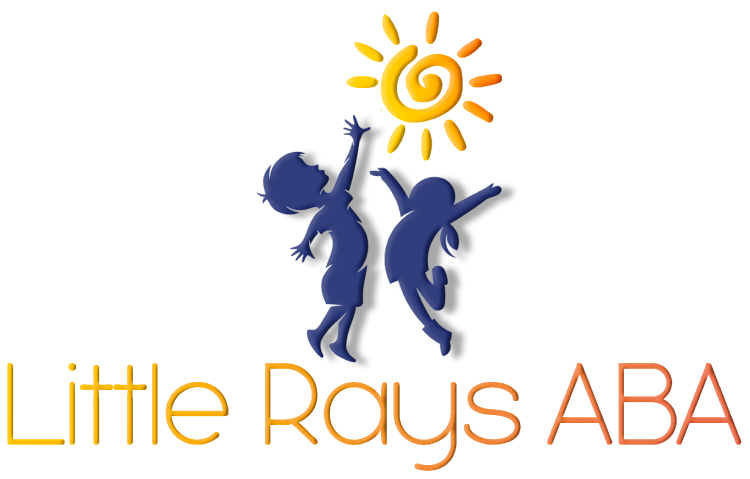Autism Spectrum Levels
Understanding Mild Autism
Mild autism, often referred to as "high-functioning autism," presents itself with subtler symptoms compared to more severe forms. Individuals with mild autism typically possess subtle yet noticeable traits that set them apart within the spectrum. These individuals may face challenges with understanding non-verbal cues, making it hard to grasp social nuances, and experiencing difficulties with certain behavioral traits and communication patterns.
| Trait | Description |
|---|---|
| Social Interaction | Difficulty understanding social cues, struggles with making and maintaining friendships. |
| Communication | Delayed language development, trouble with initiating or sustaining conversations. |
| Behavior | Repetitive behaviors, specific routines or interests, sensory sensitivities. |
Levels of Autism Severity
Autism is categorized into different levels of severity to better comprehend an individual’s needs and develop tailored interventions. Understanding each level within the autism spectrum is critical in providing appropriate assistance and interventions that meet individual needs.
| Severity Level | Description | Support Needed |
|---|---|---|
| Level 1 (Mild) | Requires support: noticeable challenges in social interaction and organization. | Minimal support, may include social skills training, structured routines. |
| Level 2 (Moderate) | Requires substantial support: significant difficulties with verbal and non-verbal communication, noticeable impact on social interactions. | Moderate support such as personalized learning plans, speech therapy. |
| Level 3 (Severe) | Requires very substantial support: severe challenges in communication and repetitive behaviors. | Intensive support including one-on-one assistance, comprehensive therapy programs. |
The classification of autism into mild, moderate, and severe levels helps professionals, caregivers, and educators tailor their strategies to meet each individual's unique needs.
Signs and Symptoms
Common Traits of Mild Autism
Mild autism, falling within the Autism Spectrum Disorder (ASD), typically involves challenges related to behavioral traits, social nuances, and communication patterns. These characteristics often set individuals apart within the spectrum. Understanding these common traits can assist parents in identifying mild autism symptoms in their children.
- Social Interaction Difficulties: Individuals with mild autism often find it hard to understand non-verbal cues such as facial expressions, hand gestures, and eye contact.
- Communication Challenges: Children with mild autism might have a limited ability to communicate verbally and non-verbally. Their communication patterns can appear atypical compared to their peers.
- Behavioral Traits: Behavioral nuances such as repetitive behaviors and specific routines may become apparent. These routines can provide a sense of predictability and comfort.
Recognizing Early Signs
Identifying the early signs of mild autism is crucial for effective intervention and support. Parents should look out for specific behaviors and developmental delays that might indicate the presence of mild autism.
- Limited Eye Contact: Avoiding or making fleeting eye contact.
- Repetitive Behaviors: Repeating the same actions or phrases.
- Delayed Speech: Slower development of speech compared to peers.
- Difficulty in Social Situations: Struggles with engaging in group activities or making friends.
- Sensory Sensitivities: Over or under-reacting to sensory input such as sounds, textures, or lights.
These early signs can manifest as challenges in understanding social cues and non-verbal communication, making it difficult to grasp the nuances of social interactions. Additionally, some children with mild autism might mask certain difficulties, yet still require the same level of support and understanding.
Recognizing these traits and early signs allows for timely intervention, which is vital for toddlers with mild to moderate autism. Early intervention can help overcome many deficits, improving long-term outcomes.
By understanding and identifying these common traits and early signs, parents can better navigate the complexities of mild autism and seek appropriate support for their child.
Challenges Faced
Understanding the challenges faced by individuals with mild autism is crucial for providing effective support. Two primary areas of difficulty include social interaction and communication.
Social Interaction Difficulties
Individuals with mild autism often experience various challenges related to social interactions. These challenges can manifest in multiple ways, including difficulty making friends, interpreting social cues, and engaging in reciprocal conversations.
- Making Friends: Difficulty initiating and maintaining friendships.
- Interpreting Social Cues: Struggles with understanding body language, facial expressions, and tone of voice.
- Reciprocal Conversations: Trouble with back-and-forth communication, including taking turns and staying on topic.
Nonverbal communication difficulties are a significant aspect of these social interaction challenges. Individuals may struggle with interpreting and using nonverbal cues such as facial expressions, body language, gestures, and eye contact. This can impact their ability to build relationships and comprehend others' emotions.
Communication Obstacles
Verbal and nonverbal communication obstacles are common among those with mild autism. Some children may have limited speech capabilities or find it challenging to engage in meaningful conversations. Children with severe autism may struggle with:
- Limited Speech: Reduced ability to express thoughts and feelings verbally.
- Interpreting Body Language: Difficulty understanding gestures and facial expressions.
- Understanding Figures of Speech: Challenges with comprehending idioms, jokes, and metaphors.
Additionally, nonverbal communication challenges can complicate social interactions further. Children with severe autism may have difficulty making eye contact and using or understanding body language, impacting their ability to form and maintain relationships.
Understanding these social and communication challenges is vital for parents and caregivers to support their children with mild autism better. By recognizing and addressing these hurdles, parents can foster a more inclusive environment that encourages social engagement and effective communication.
Diagnosis and Support
Importance of Early Intervention
Early intervention is paramount in managing mild autism symptoms. Children with mild autism who receive early intervention and guidance can become virtually indistinguishable from their peers during adolescence and adulthood. Intervening at an early age allows children to develop essential skills in communication and social interaction, helping them navigate their environment more effectively.
Children with mild autism may exhibit challenges with behavioral traits, social nuances, and communication patterns. Recognizing these signs early ensures appropriate measures are taken to address these issues. The National Autistic Society emphasizes that accurate and early intervention is crucial for providing the necessary support to individuals diagnosed with autism. This early support can set the foundation for a productive and independent life.
Tailored Support Strategies
Once mild autism symptoms are identified, a spectrum of tailored support strategies can be implemented to assist in the child's development. It's essential to remember that one-size-fits-all approaches are often ineffective. Individualized strategies can make a significant difference in a child's progress.
Before receiving a formal diagnosis, parents and caregivers can still initiate support measures. These strategies are crucial and must be tailored to meet individual needs:
- Behavioral Therapy: Teaches positive behaviors and social skills.
- Speech Therapy: Enhances communication skills, beneficial for verbal and non-verbal children.
- Occupational Therapy: Focuses on improving motor skills and daily living activities.
- Social Skills Training: Helps children learn how to interact appropriately with peers.
Parents play an integral role in these interventions; their support is invaluable. Programs often involve parental training to ensure consistency between home and therapeutic settings.
These strategies can effectively enable a child with mild autism to lead a normal, productive, and independent life. The goal is to equip them with the skills needed for successful navigation in school, at home, and in social settings, providing a solid foundation for future success.
By recognizing the importance of early intervention and tailoring support strategies, parents can ensure that their children with mild autism symptoms receive the necessary tools and resources to thrive.
Little Rays ABA is Florida’s trusted provider of ABA therapy, offering expert support for children with mild autism symptoms. Their personalized approach helps parents understand and address subtle challenges, providing effective strategies to enhance communication, behavior, and social skills.
If you’re looking for a compassionate and results-driven approach to help your child thrive, contact Little Rays ABA today and start your child’s journey to progress.
Masking and Misconceptions
Masking Symptoms
Masking refers to the strategy some autistic individuals use to hide their difficulties and fit in with societal expectations. This is particularly common among autistic women and girls, who may be better at masking their challenges to match their peers.
As a result, it can make it harder to identify symptoms of autism, especially in females. When children mask their symptoms, they might appear to have a more even profile of social skills, which can lead to misunderstandings about their actual needs.
Role of Formal Diagnosis
Despite their ability to mask certain difficulties, children with mild autism may still have the same underlying needs as other autistic children. This underscores the importance of a formal diagnostic assessment.
A formal diagnosis validates their experiences and opens access to tailored support strategies and resources that can significantly impact their development and daily lives. Without a proper diagnosis, these children may miss out on essential interventions and the understanding they deserve.
Seeking Professional Help
Initiating Discussions
For parents who suspect their child might be showing mild autism symptoms, initiating a discussion with a healthcare provider is a critical first step. Broaching the subject of autism diagnosis can feel daunting. Nevertheless, sensitivity and clear communication are imperative for helping parents understand and process the situation.
Methods to initiate discussions:
- In-Person Conversations: Direct and personal communication can be very effective for conveying concerns.
- Written Communication: Letters or emails can provide detailed information for parents to review at their own pace.
- Informational Materials: Providing pamphlets or brochures about autism can help parents gather information.
Through these methods, parents can engage in meaningful dialogues with their child’s healthcare provider, gaining insight into both the diagnostic process and what signs to look for.
Consulting Healthcare Professionals
Healthcare professionals play a pivotal role in diagnosing and supporting children with autism. Given that there are no biological tests for autism, diagnosis is based on a set of behavioral characteristics, which makes consulting trained healthcare providers essential.
Steps to Consult Healthcare Professionals:
- Schedule an Appointment: Set up a consultation with a pediatrician or a child development specialist.
- Prepare Documentation: Bring a list of observed symptoms and any developmental milestones or delays.
- Ask Questions: Inquire about the next steps, early intervention services, and potential support strategies.
- Follow-Up: Schedule follow-up appointments to monitor progress and adjust support strategies as needed.
Healthcare professionals are trained to identify and diagnose developmental differences, ensuring that children receive the most accurate assessment possible. Early intervention has proven crucial in providing necessary support.
By seeking professional help and initiating meaningful discussions, parents can ensure their child receives the necessary support tailored to their unique needs.
Recognizing mild autism symptoms early is essential for providing the right support. ABA therapy and supporting services offer personalized approaches to help children with mild autism thrive in communication, behavior, and social skills. If you're looking for tailored support for your child, contact local providers today to learn how ABA therapy can make a meaningful difference in their development.
Conclusion
Understanding mild autism symptoms can empower parents to provide the right support for their child’s growth and well-being. Early recognition of social, communication, and behavioral differences allows for timely intervention, helping children develop essential life skills. By fostering a supportive environment, seeking professional guidance when needed, and embracing their child’s unique strengths, parents can play a pivotal role in their child’s success. Remember, every child’s journey is different—patience, education, and love are key to navigating autism with confidence.
At Little Rays ABA, we understand that even mild autism symptoms can significantly impact a child's development and family dynamics. We believe in empowering parents with the knowledge and tools they need to navigate the complexities of mild autism with confidence. Our experienced therapists provide comprehensive insights into recognizing and understanding subtle symptoms, helping families identify early signs and seek timely support. We emphasize individualized approaches, tailoring our interventions to address the unique needs of each child and family. Little Rays ABA is committed to fostering a supportive and nurturing environment, ensuring that parents feel equipped and empowered to advocate for their child's success and well-being.
Frequently Asked Questions
1. What are the common signs of mild autism?
Children with mild autism may have difficulties with social interactions, prefer routines, display repetitive behaviors, and struggle with understanding nonverbal cues like facial expressions or tone of voice.
2. How is mild autism diagnosed?
A diagnosis is typically made through developmental screenings, behavioral observations, and assessments conducted by pediatricians, psychologists, or developmental specialists.
3. Can mild autism be outgrown?
Autism is a lifelong condition, but with early intervention, therapy, and support, individuals can develop coping strategies that help them navigate daily life more effectively.
Sources:
https://educationonline.ku.edu/community/social-difficulties-in-autism-spectrum-disorder/
https://www.autism.org.uk/advice-and-guidance/professional-practice/teachers-diagnosis
https://www.verywellhealth.com/what-is-mild-autism-260244
https://www.nhs.uk/conditions/autism/signs/adults/
https://www.autismparentingmagazine.com/mild-autism-adults/
https://www.medicinenet.com/can_you_be_a_little_autistic/article.htm
Unlock Your Child's Potential with Expert ABA Therapy!
At Little Rays ABA, we provide compassionate, evidence-based ABA therapy to help children with autism thrive. Our personalized approach fosters growth in communication, social skills, and independence.
Get In Touch With Us Today to Get Started With ABA Therapy!
Related Posts
MENU
GET IN TOUCH
7117 San Salvador Dr Boca Raton, FL 33433
3200 Collins Ave Miami Beach, FL 33140





